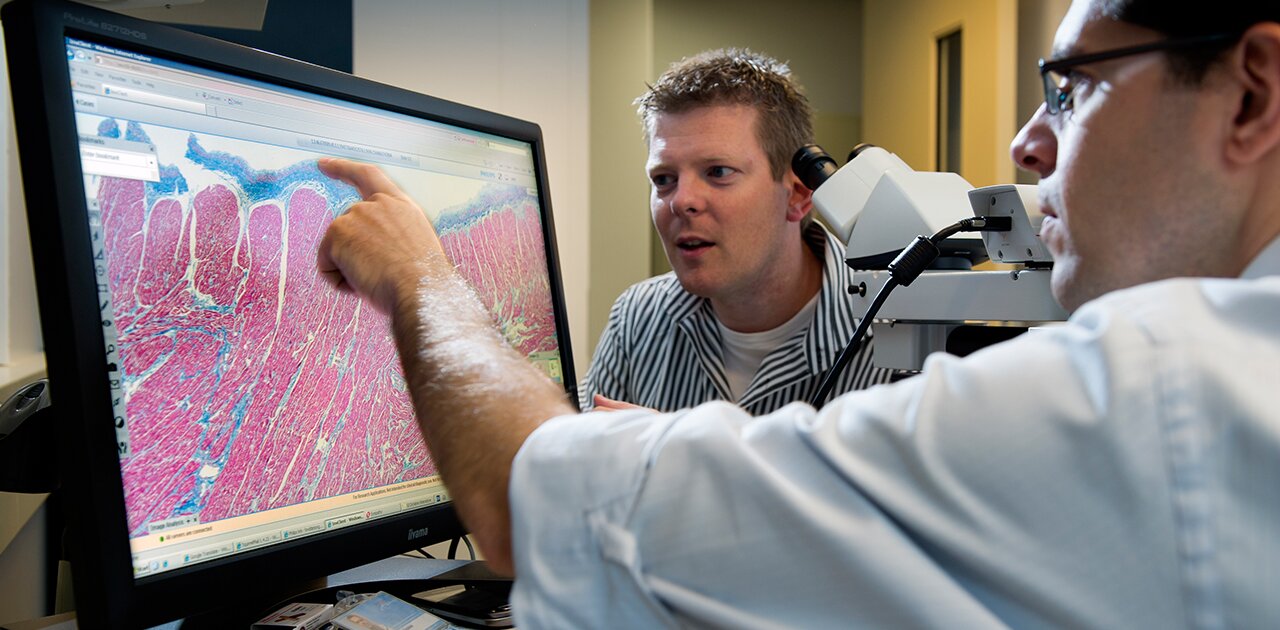Understanding the molecular basis
The molecular events leading to cancer are not completely understood. Several EU-funded research projects are unravelling the molecular underpinnings of cancer.
One example is the SYSCOL project, which studies the genetic basis of colorectal cancer. “We search for genes that are linked to colorectal cancer and gene switches that control the expression of these genes. Understanding its genetic basis will greatly improve our ability to diagnose, treat and ultimately prevent colorectal cancer”, says Jussi Taipale, scientific coordinator of SYSCOL.
More basic cancer research is described on www.HorizonHealth.eu’s project pages COGS, DDResponse, Mismatch2model, PRO-NEST and Systems Microscopy.
Designing novel diagnostic tools
Today’s technology is not sensitive enough to diagnose cancer at a very early stage. Scientists involved in the Namdiatream consortium are developing a toolkit to detect cancer cells early. The toolkit applies nanotechnology and may enable clinicians to remove cancers before they become dangerous.
Read more about the latest developments in nanotechnology on the blog Small World or watch Cambridge University's video about nanoscience.
Developing treatments with reduced side effects
Chemotherapy causes damage to tumour cells, but also to healthy cells. As a result, current cancer treatments produce side effects such as hair loss, vomiting, diarrhoea and bone-marrow suppression. The project 'nanoporation' is developing a new treatment method that eliminates side effects.
Nanoporation researchers place anti-cancer drugs inside tiny compartments called ‘nano-capsules’. These only release the pharmaceuticals when ultrasound is applied. The ultrasound is targeted specifically to the tumour. “The drug kills the cancer cells, whilst nano-capsules in the rest of the body remain inactive, preventing healthy cells from being exposed”, explains Andreas Melzer, coordinator of the project.
The method seems to work in mice. Human clinical trials are planned for 2014. Dr. Melzer and his team hope that their new treatment will result in higher survival rates and better quality of life for cancer patients.
Read more about the Nanoporation project or watch the video of a nano-capsule delivering a drug on the project's homepage.



Comments
Science contre le cancer http
Science contre le cancer http://www.irepliquedemontre.com
Download apps for pc http:/
Download apps for pc http://pcdownloadfree.com
Download vidmate app.http:/
Download vidmate app.http://vid-mate.net/
thanks share this information
thanks share this information it amazing you can visit my website here http://mokuton.drupalgardens.com/ andhttp://enaktenan.drupalgardens.com/ andhttps://ahmadjuki.wordpress.com/ hope you visit
thanks discuss this details
thanks discuss this details it awesome you can check out my web page here http://gamesterms.snack.ws/
The method seems to work in
The method seems to work in rats http://gamehavenz.weebly.com/ . Individual medical studies are organized for 2014. Dr. Melzer and his group wish that their new treatment will result in higher success prices and better total well being for melanoma sufferers.
<a rel="http://www.hirenmove
<a href="http://www.hirenmove.in/packers-and-movers/hyderabad.html" rel="nofollow">Packers and Movers Hyderabad</a><a href="http://www.hirenmove.in/packers-and-movers/delhi.html" rel="nofollow">Packers and Movers Delhi</a>
Residential Packers and
Residential Packers and Movers in Hyderabad athttp://www.hirenmove.in/packers-and-movers/hyderabad.htmlResidential Packers and Movers in Delhi athttp://www.hirenmove.in/packers-and-movers/delhi.html
Add new comment